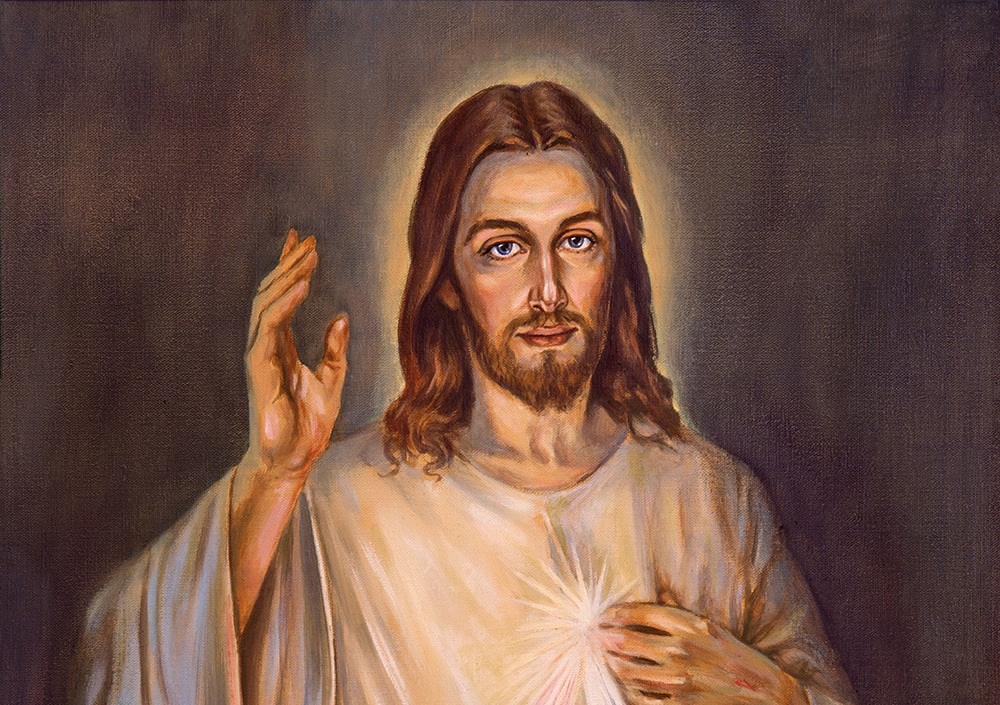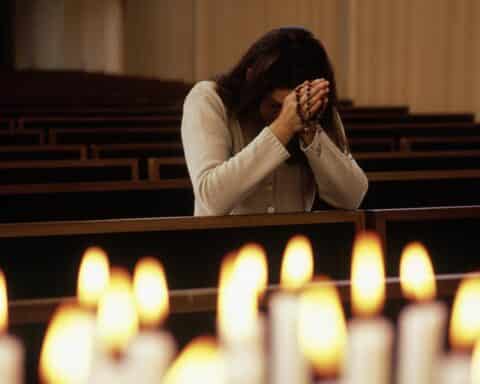I know very little about Sheldon Vanauken, and I have never read his autobiography, but for some years now I have been captivated by the book’s title: “A Severe Mercy.” I couldn’t help but think of it once again recently as I was reflecting upon the situation that we find ourselves in as we approach the Second Sunday of Easter, Divine Mercy Sunday. For most of us, I tend to think that this year’s celebration will feel more like a Divine Severe Mercy Sunday given the many spiritual, social, economic and personal challenges that we face as a result of the coronavirus pandemic.
A year or two ago, the late night television personality Stephen Colbert gave an interview in which he paraphrased a lesson on suffering that he had learned and taken to heart from the beloved Catholic author J.R.R. Tolkien. In response to his own personal losses and setbacks over the years Colbert, echoing the faith-filled thinking of Tolkien, rhetorically asked, “What punishments of God are not gifts?” For him, and for all of us who trust in Jesus Christ, following the example and instruction of St. Faustina, there is but one answer: all of them. All is grace. All is mercy.
By this I do not mean to imply that I have some infallible knowledge that the coronavirus pandemic is a punishment from God. It may very well be. But perhaps it is just a test — or something else. In the end, only God himself knows with perfect certainty exactly why he has allowed any of this to unfold. But what I do know with the certainty of faith is this: Unlike us, God always takes an eternal view of things, and in the words of St. Paul to the Romans “all things work together for the good for those who love God” (8:28), and the greatest good that God desires for each of us is an eternal one — namely, perfect union with him in that blessed vision that we call heaven.
So, given all of this, and following the logic of Tolkien and Colbert, I think that we can honestly say that whatever we are experiencing right now is, in some mysterious way, a gift of God’s mercy, however severe it might feel in the present moment.
Be that as it may, it still stings, and as such it is natural for us to focus on the question of “why?” And so we ask: “Why God?”, “Why now?”, “Why us?”, “Why this pandemic?” But, as I have learned from the writings of Father Jacques Philippe, “why?” is the wrong question to ask if one is truly interested in moving forward and not getting stuck, because on this side of eternity we “see indistinctly, as in a mirror” (1 Cor 13:12). Instead, we do much better to ask the more spiritually productive question of “what?” “What is God asking of me in the present moment?” And, for our purposes, “What is God asking of me this Divine [Severe] Mercy Sunday?”
I would like to suggest three answers. First, God wants exactly from us what he wanted from St. Faustina in those difficult years leading up to World War II: greater trust! He wants us to trust in his divine mercy, to trust in his providential plan, and to trust in his unfailing goodness in the face of our sufferings. In her diary, St. Faustina wrote, “Suffering is a great grace; through suffering the soul becomes like the Savior” (No. 57). Jesus, help us to trust that this is true, and help us to trust in you, so that in doing so we might continue to become more like you!
Second, God is inviting us to persevere in prayer. So let’s take up the Chaplet of Divine Mercy once again and pray it for those who have died because of the coronavirus and for their loved ones, for those who are working on the front lines to treat and combat the virus, for a swift end to the pandemic, for all those who are struggling with loneliness, anxiety and financial/job concerns, and for those who despair of finding God’s mercy, especially during this difficult time when so much of the Church’s healing ministry is restricted. “Holy God, Holy Mighty One, Holy Immortal One, have mercy on us and on the whole world.”
Last, I believe that God is asking each of us to discover new and creative ways of practicing the spiritual and corporal works of mercy. Maybe this means calling a loved one more frequently or sending regular emails to check in on co-workers or on neighbors, or dropping off food for the elderly, or starting a prayer chain, or something else. I’m certain that if you ask the Holy Spirit to inspire you anew this Divine Mercy Sunday — and every day — he will, because as the Book of Lamentations reminds us, “[God’s mercies] are renewed each morning” (3:23). And it is only a matter of time before the severity of his mercy gives way to tenderness once again.





